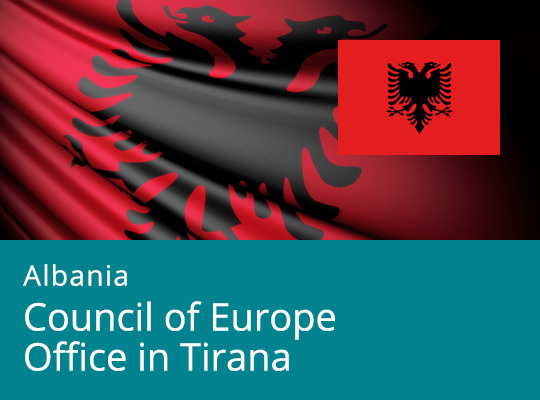Enhancing the protection of human rights of prisoners in Albania
The action Enhancing the protection of human rights of prisoners in Albania assists the authorities to further enhance prison reform and the protection of the human rights of prisoners and the persons detained in special institutions. It is implemented in close co-operation and partnership with the Ministry of Justice (Directorate General for Prison Administration - DGPA), the Ministry of Health and other national stakeholders, including prominent civil society organisations active in the area of protection and promotion of human rights.
The action is implemented within the joint programme of the European Union and the Council of Europe Horizontal Facility for the Western Balkans and Türkiye running from January 2023 until December 2026.
What is the goal(s) and objective(s) of the action?
The overall goal of the action is to raise awareness and understanding of the Council of Europe’s standards on the protection of the rights of prisoners and people in close institutions and provide assistance in achieving alignment of the Albanian penitentiary system with the Council of Europe standards and recommendations.
Specific goals:
- To support a systematic application of newly gained knowledge and skills by prison staff on improved healthcare provision to prisoners with mental health disorders and forensic patients;
- To contribute to further strengthen the process of rehabilitation and reintegration of prisoners through the application of individual sentence plans and reintegration programmes;
- To assist the Directorate General of Prison Administration (DGPA) in the process of further strengthening their human capacities for a sustainable in-house training provision.
Who benefits from the action?
- public authorities such as: Ministry of Justice; General Directorate of the Prison Administration and prisons’ staff, Ministry of Health and Social Protection, Ombudsman, Ministry of Education
- civil society organisations that provide services to persons in prisons and other closed institutions
- prisoners and related family and society at large.
How will the action work?
The action builds on results and achievements of the previous phases of the Horizontal Facility programme and will work with beneficiaries in the Western Balkans:
- by aligning penitentiary legislation with Council of Europe standards;
- through the introduction and application of specialised tools and practices, aiming at better rehabilitation and reintegration of inmates;
- by enhancing the skills and competences of the medical and non-medical staff, to provide a dignified treatment to prisoners with mental health disorders and forensic patients
- by supporting the process of training of the staff dealing with inmates and other detained persons;
- through promoting to wider public how enhanced rehabilitation of inmates and their reintegration into society will help reduce the risk of reoffending.
What do we expect to achieve?
- The systematic application of newly gained knowledge and skills by prison staff improved healthcare provision to prisoners with mental health disorders and forensic patients;
- The process of rehabilitation and reintegration of prisoners is further strengthened through the application of individual sentence plans and reintegration programmes;
- Consolidated human resources practices and capacities of the Directorate General of Prison Administration for sustainable in-house training provision.
What is the budget of the action?
The total budget of the action is 850,000 Euros.
The budget allocated to the overall Horizontal Facility programme amounts to ca. 41 Million EUR (85% funded by the European Union, 15% by the Council of Europe).
How to get more information?
- Council of Europe Unit for Cooperation in Police and Deprivation of Liberty
- Horizontal Facility website
About Horizontal Facility for the Western Balkans and Türkiye
The Horizontal Facility for the Western Balkans and Türkiye is a joint initiative of the European Union and the Council of Europe that enables the Western Balkans Beneficiaries and Türkiye to meet their reform agendas in the fields of human rights, rule of law and democracy and to comply with the European standards, which is also a priority for the EU enlargement process.



